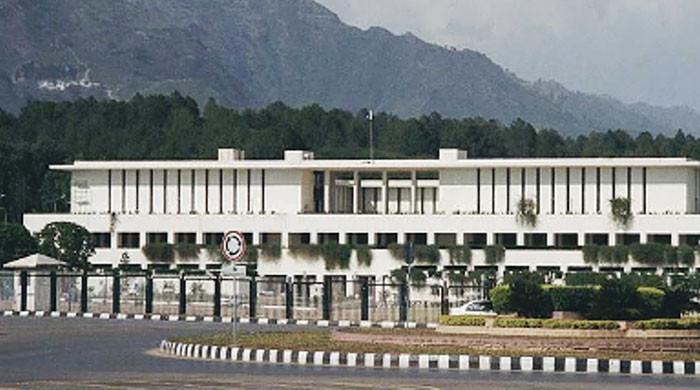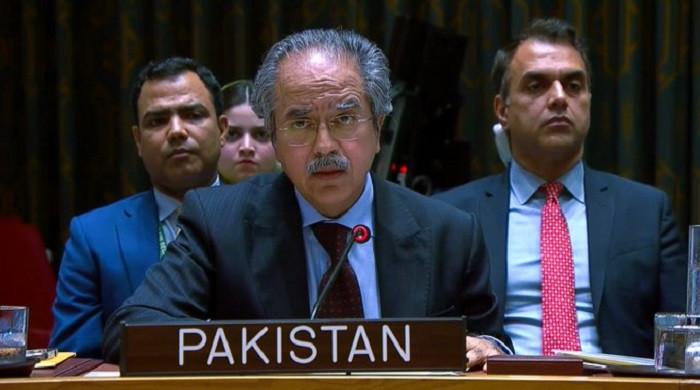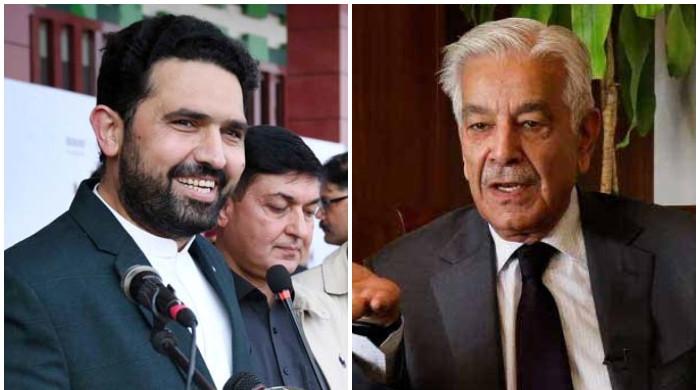Supreme Court allows govt to take action against sugar mill owners
Supreme Court directs government to not take any unnecessary steps against the sugar mill owners while conducting its inquiry
July 14, 2020
ISLAMABAD: The Supreme Court of Pakistan on Tuesday gave the government the go-ahead to take action against sugar mill owners in the country, striking down a stay order by the Sindh High Court (SHC) earlier.
During the hearing today, the apex court directed the government to not take any unnecessary steps against the sugar mill owners at the same time.
“Sindh and Islamabad high courts should rule on the sugar inquiry commission in the next three weeks,” the top court added.
The apex court, in its decision, also stopped government representatives from discussing the sugar inquiry commission report.
SC dismisses govt plea to set aside order barring action on sugar commission report
On July 2, the apex court’s three-member bench under Chief Justice Gulzar Ahmed heard a case on the plea filed against the Sindh High Court’s decision which had stopped the government from taking action against sugar mill owners held responsible for the sugar price hike earlier this year.
During the hearing, the AGP had said that there was no need to listen to the sugar mills owners' stance as it was a fact-finding commission. He added that the report was an eye-opener, adding that all executive authorities have been activated against it.
The chief justice inquired as to how the Sugar Inquiry Comission report can impact the mill owners, asking them about their concerns on the matter.
Makhddom Ali Khan, the counsel for the sugar mill owners, then responded by saying that the executive action has been challenged by some sugar mill owners in various courts. He added that reaching out too the high courts was not out of the ordinary.
Justice Gulzar Ahmed added that the situation was caused by the government itself as it opens an inquiry which leads to court cases.
Meanwhile, Justice Ahsan once again asked Makhdoom Ali Khan why the sugar mill owners approached the SHC after reaching out to IHC.
Advocate Makhdoom Ali Khan said that the Sugar Mills Association had approached the IHC in its personal capacity and the commission only provided recommendations.
“Sugar mills will get nothing out of declaring the report illegal,” remarked CJP.
“Sugar mills have the complete right to defend themselves before the regulatory authorities,” remarked Justice Ahsan.
After the arguments, the apex court subsequently turned down the government's plea against barring action on the SIC report, adjourning the case until July 14.
In June, the SHC had suspended the operation on the Sugar Inquiry Commission report to the extent of as many as 20 sugar mills owners in Sindh.
The interim order came on the petition of Mirpurkhas Sugar Mills and others, which sought quashing of the Sugar Commission Inquiry report.
The petitioners’ counsel submitted that the commission was not properly constituted per the relevant legislation. Besides, the commission included members who were biased and had already made up their minds against the sugar mills as they were members of the earlier inquiry committee constituted for the same purpose.
They submitted during the entire inquiry commission exercise, none of the petitioners were asked for information or clarification regarding the operation and business of their respective sugar mills while the sugar commission made observations against the petitioners, which has harmed the businesses and reputation of the petitioners.
'Damning revelations in Sugar Inquiry Commission's report'
The Sugar Inquiry Commission report had laid bare some startling revelations about how the price of sugar is fixed, how exports of the commodity are faked to avail rebates on sales taxes, and how billions of rupees are overcharged by sugar mills owners.
According to sources, the report mentioned in depth how the amount of sugar exported to Afghanistan is routinely inflated to show as if 75 tonnes of the commodity were being exported per truck.
However, this is barely possible, given that the maximum capacity of a truck, even when overloaded, does not exceed 30 tonnes.
The scam also seemingly has another purpose: laundering money. If sugar is being exported to Afghanistan, the payment should also be coming in from the same country.
However, it was found by the commission that many sugar mill owners were receiving telegraphic transfers for payments for sugar sold to Afghanistan from the US and Dubai, therefore seemingly whitening money and earning dollars at the same time.
Another important finding highlighted in the report is that sugar mills paid an estimated Rs22bn in taxes to the Government of Pakistan, but out of that total amount, Rs12bn was reclaimed in rebates. Hence, the net contribution was close to around Rs10bn.











